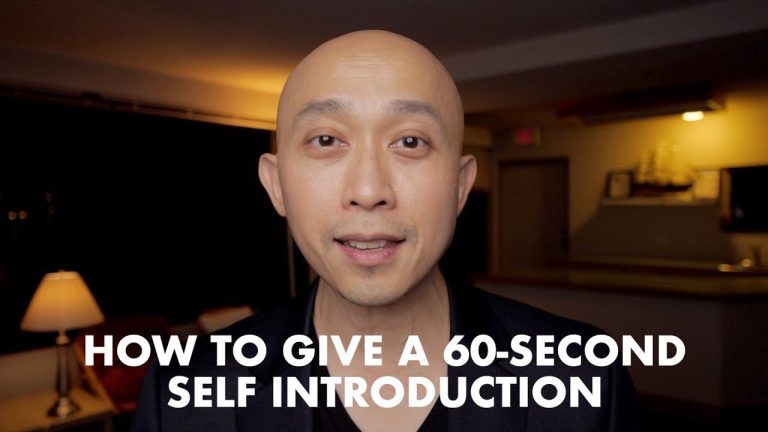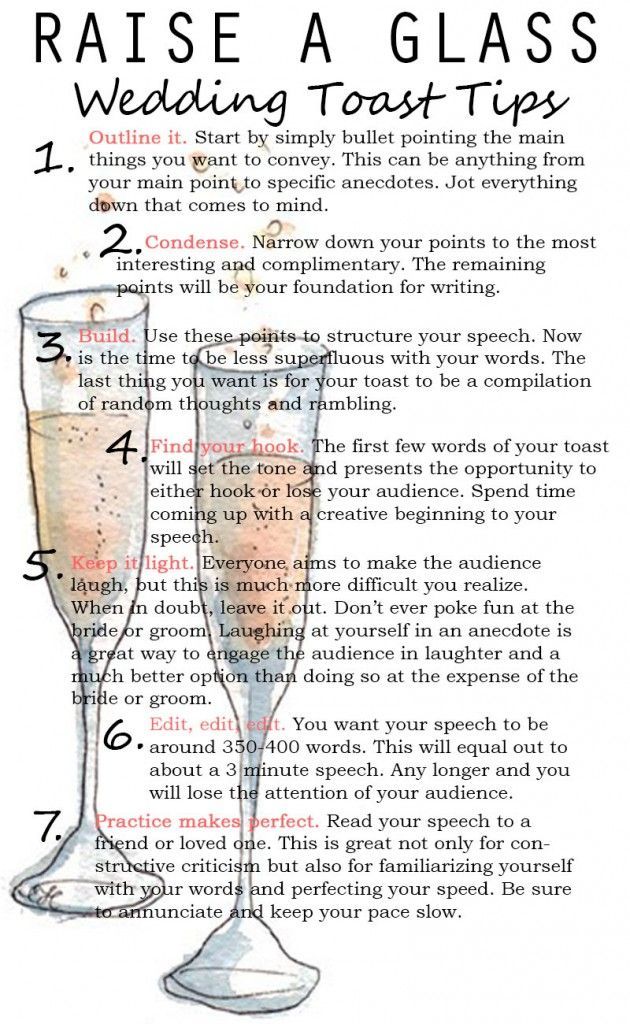Speech Therapy For 4-Year-Olds
Welcome to the world of speech therapy for 4-year-olds! If you’re wondering how to help your little one develop their communication skills, you’ve come to the right place. So, let’s dive in and explore the exciting and rewarding journey of speech therapy together.
At this age, children are like sponges, absorbing everything around them and eager to explore and learn. Speech therapy can play a crucial role in nurturing their language development. From improving articulation to enhancing vocabulary and sentence formation, speech therapy can empower them to express themselves confidently.
In this article, we’ll uncover the magic behind speech therapy for 4-year-olds, exploring fun exercises, techniques, and strategies that can support your child’s speech and language skills. Whether your child is struggling with pronunciation, stuttering, or language delays, speech therapy can be a game-changer. Let’s embark on this exciting adventure and unlock your child’s full potential!
Looking for effective speech therapy for your 4-year-olds? Help them improve their communication skills with these expert strategies. Encourage speech development through activities like reading, singing, and storytelling. Use visual aids and gestures to enhance understanding. Engage in conversations to build vocabulary and sentence structure. Seek the guidance of a speech-language pathologist for specialized therapy sessions. With consistent practice and support, your child will develop their speech and communication abilities.

Speech Therapy for 4-Year-Olds: Unlocking Communication Skills
Welcome to our comprehensive guide on speech therapy for 4-year-olds. This crucial form of therapy is designed to help children develop and improve their communication skills. In this article, we will explore the benefits of speech therapy for 4-year-olds, discuss various techniques and strategies used in therapy sessions, and provide practical tips for parents and caregivers. Whether your child is experiencing difficulties with articulation, fluency, or language development, speech therapy can be a transformative tool in their journey towards effective communication.
The Benefits of Speech Therapy for 4-Year-Olds
Speech therapy for 4-year-olds offers numerous benefits that can have a lasting impact on their overall development and future success. Firstly, it enhances their language skills, allowing them to express themselves more clearly and effectively. Improved communication skills can boost their self-confidence and help them build stronger relationships with peers. Additionally, speech therapy can address speech sound disorders, such as lisps or difficulty pronouncing certain sounds, ensuring that children are better understood by others. It also helps with fluency disorders, such as stuttering, enabling children to speak more smoothly and confidently.
Furthermore, speech therapy supports the development of important pre-literacy skills, such as phonological awareness, which is crucial for reading and writing. By working on these foundational skills, children are better prepared for success in school and beyond. Speech therapists also play a vital role in helping children overcome difficulties with social communication, such as understanding non-verbal cues, maintaining appropriate eye contact, and engaging in conversations. These skills are essential for navigating social interactions and forming meaningful connections with others.
In summary, speech therapy for 4-year-olds offers a wide range of benefits, including improved language skills, enhanced self-confidence, better articulation, increased fluency, and stronger social communication abilities.
Techniques and Strategies Used in Speech Therapy for 4-Year-Olds
Speech therapy sessions for 4-year-olds typically employ a variety of techniques and strategies tailored to each child’s specific needs. One commonly used practice is articulation therapy, which focuses on improving speech sound production. Speech therapists use fun and engaging activities, such as games and exercises, to help children learn how to correctly produce sounds and articulate them in words and sentences.
Language intervention is another important aspect of speech therapy for 4-year-olds. This approach targets the comprehension and expression of language, helping children understand and use words, sentences, and concepts. Language intervention may involve activities like storybooks, picture cards, and interactive play, allowing children to develop their vocabulary, sentence structure, and overall language skills.
For children struggling with fluency disorders, such as stuttering, speech therapists use techniques like fluency shaping and stuttering modification. These strategies involve teaching children ways to control their breathing and speaking rate, helping them speak more fluently and with reduced hesitations. Therapists may also focus on increasing children’s confidence and resilience when facing moments of disfluency.
Practical Tips for Parents and Caregivers
As a parent or caregiver, you play a crucial role in supporting your child’s progress in speech therapy. Here are some practical tips to enhance their learning and development:
- Consistency is key: Encourage regular attendance and participation in therapy sessions to ensure maximum progress.
- Practice at home: Work with your child on the techniques and strategies taught in therapy. Incorporate speech exercises into daily activities and make it a fun and interactive experience.
- Offer positive reinforcement: Recognize and praise your child’s efforts and achievements during therapy sessions and at home. This boosts their motivation and self-esteem.
- Be patient: Progress takes time, and every child develops at their own pace. Celebrate small victories along the way and maintain a supportive environment.
- Communicate with the speech therapist: Stay in touch with your child’s speech therapist, ask questions, and seek guidance on how to best support your child’s communication goals.
By incorporating these tips into your daily routine, you can create a nurturing and empowering environment for your child as they continue their journey in speech therapy.
The Role of Speech Therapists in the Journey to Improved Communication
Speech therapists are highly trained professionals who play an essential role in helping 4-year-olds overcome speech and language difficulties. They create personalized therapy plans based on an individual child’s needs and goals, utilizing evidence-based techniques and strategies. Let’s delve deeper into the responsibilities and expertise of speech therapists in the context of speech therapy for 4-year-olds.
Evaluating and Assessing Communication Skills
At the beginning of the therapy process, speech therapists conduct comprehensive evaluations to determine a child’s specific communication strengths and weaknesses. They assess various aspects, such as articulation, fluency, voice quality, language comprehension, and expressive language skills. These evaluations help therapists develop tailored treatment plans and set specific goals that address the child’s unique speech and language needs.
Therapists may use standardized assessments, observation, and play-based interactions to gather information about a child’s communication skills. These assessments help identify areas of concern and provide a baseline for tracking progress throughout the therapy journey. By understanding the child’s abilities and challenges, therapists can tailor therapy interventions to ensure optimal outcomes.
Crafting Individualized Therapy Plans
Once the evaluation is complete, speech therapists design individualized therapy plans that target the specific needs identified during the assessment. These plans incorporate evidence-based techniques and strategies to enhance communication skills. Therapy sessions are typically interactive and engaging, designed to capture the child’s interest and motivate their participation.
Therapists use a variety of materials, including books, toys, puzzles, and technology-based activities, to create a stimulating environment that supports learning and growth. They may also provide home practice materials and strategies for parents to reinforce the therapy goals outside of sessions. With their expertise and knowledge, speech therapists guide children through therapy with patience, compassion, and a deep understanding of developmentally appropriate methodologies.
Collaborating with Parents and Caregivers
Speech therapy for 4-year-olds extends beyond the therapy room. Speech therapists recognize the importance of collaboration with parents and caregivers to ensure continuity of progress. They engage parents in the therapy process, providing guidance, support, and training on how to incorporate therapy techniques into everyday routines.
Therapists often conduct meetings with parents to discuss progress, address concerns, and set new goals. They equip parents with strategies to promote speech and language development at home, fostering consistent growth and reinforcement. By working closely with parents and caregivers, speech therapists create a strong support system to maximize the impact of therapy and promote long-term success.
Speech Therapy Techniques for Articulation Development
Articulation is the process of producing clear and intelligible speech sounds. For many children, speech therapy focuses on improving their articulation skills to enhance overall communication. Here are three effective techniques often used by speech therapists to facilitate articulation development in 4-year-olds.
1. Articulation Drills
Articulation drills involve repetitive practice of specific speech sounds in isolation, words, phrases, and sentences. The therapist models the correct sound production and provides visual and tactile cues to support the child’s learning. By practicing these drills in a structured and systematic way, children can gradually improve their ability to produce the target sounds.
Articulation drill sessions often incorporate fun games and activities to maintain the child’s engagement and motivation. For example, the therapist may use flashcards, puzzles, or interactive computer programs that allow the child to earn rewards for correct productions. The drills are tailored to the child’s specific speech goals and are gradually expanded to include more challenging sound combinations and contexts.
2. Minimal Pairs and Contrast Therapy
Minimal pairs and contrast therapy are techniques used when a child is struggling to differentiate between similar sounds. Minimal pairs are words that differ by only one sound, such as “cat” and “bat.” In contrast therapy, the therapist helps the child discriminate between these minimal pairs by emphasizing the distinct sound difference.
During therapy sessions, the therapist presents the child with minimal pairs and provides explicit instruction on how to correctly produce the target sounds. The child is encouraged to actively listen and identify the differences between the words. The therapist may use visual aids, such as pictures or objects, to facilitate understanding and reinforce sound discrimination skills. Over time, this technique helps the child demonstrate improved accuracy and differentiation between similar sounds.
3. Auditory Bombardment
Auditory bombardment is a technique that exposes the child to a high volume of target sounds in meaningful and engaging contexts. The therapist presents the child with various auditory stimuli, such as recordings or live models of the target sound, embedded within words, sentences, and stories. This technique helps the child develop a clearer auditory perception of the target sound.
During auditory bombardment sessions, the therapist focuses on repetition and multisensory engagement to increase the child’s exposure and familiarity with the target sound. The child is encouraged to actively participate by imitating, repeating, and responding to the auditory stimuli. By immersing the child in a rich auditory environment, auditory bombardment reinforces sound production and facilitates the integration of the target sounds in conversational speech.
Speech Therapy Techniques for Language Development
Language development is a crucial aspect of speech therapy for 4-year-olds. Speech therapists utilize various techniques to enhance a child’s understanding and expression of language. Here are three effective techniques commonly used in language intervention.
1. Picture-Based Activities
Picture-based activities are highly effective in promoting language development in 4-year-olds. The therapist uses picture cards, storybooks, and visual aids to engage the child and facilitate language comprehension and expression. The child is encouraged to describe, label, and answer questions about the pictures, promoting vocabulary expansion and sentence formation.
The therapist may also use picture cards to help the child understand and follow directions. This technique enhances receptive language skills and improves the child’s ability to comprehend and carry out verbal instructions. By incorporating pictures into therapy sessions, speech therapists create a visual and interactive learning environment that supports the child’s language development.
2. Story-Based Interventions
Story-based interventions are powerful tools for language development in 4-year-olds. The therapist selects age-appropriate storybooks and engages the child in interactive reading sessions. The child is encouraged to participate by answering questions, predicting outcomes, and retelling the story in their own words.
Through these interactions, the child’s comprehension, vocabulary, and narrative skills are strengthened. Story-based interventions also foster the development of inferential and critical thinking abilities. As the therapist guides the child through the story, they can introduce new vocabulary, explain concepts, and model correct sentence structure, further enhancing the child’s language skills.
3. Play-Based Language Therapy
Play-based language therapy is a dynamic and enjoyable approach that capitalizes on children’s natural inclination to play. The therapist creates play scenarios, using toys, puppets, and other props, to encourage the child’s language expression and comprehension. Play activities provide opportunities for the child to engage in conversations, use imaginative language, and practice turn-taking.
During play sessions, the therapist models appropriate language use and prompts the child to verbalize their thoughts, make requests, and ask questions. This technique stimulates vocabulary growth, grammar development, and pragmatic language skills. Play-based language therapy not only facilitates language development but also allows the child to generalize their language skills to real-life situations.
Dos and Don’ts for Supporting Your Child’s Speech Therapy Journey
As a parent or caregiver, your support is instrumental in maximizing your child’s progress in speech therapy. Here are some essential dos and don’ts to keep in mind:
Dos:
- Do attend therapy sessions regularly and encourage your child’s active participation.
- Do practice therapy techniques and strategies at home to reinforce learning.
- Do provide a supportive and nurturing environment that boosts your child’s confidence.
- Do celebrate small milestones and achievements throughout the therapy journey.
- Do maintain open communication with your child’s speech therapist, asking questions and seeking guidance as needed.
Don’ts:
- Don’t pressure or rush your child’s progress. Each child develops at their own pace.
- Don’t focus solely on speech errors. Remember that language skills encompass more than just speech sounds.
- Don’t compare your child’s progress with other children. Every journey is unique.
- Don’t neglect other aspects of your child’s development, such as social and emotional growth.
- Don’t hesitate to seek additional support or resources if needed. You are not alone on this journey.
Incorporating Speech Therapy Techniques into Daily Routines
Speech therapy can extend beyond therapy sessions and be seamlessly integrated into your child’s daily routines. Here are some practical ways to incorporate speech therapy techniques into everyday activities:
1. Mealtime Conversations
During mealtime, encourage your child to talk about their day, describe the food they’re eating, or engage in storytelling. This fosters language development, vocabulary expansion, and conversational skills.
2. Bookworm Moments
Set aside dedicated time for reading books together. Encourage your child to retell the story, answer questions, and discuss the characters or events. This reinforces comprehension, vocabulary, and narrative skills.
3. Language-Rich Outings
When you go on outings, such as trips to the grocery store, the park, or the zoo, engage your child in descriptive conversations about their surroundings. Encourage them to name objects, describe colors, or ask questions. This promotes language development and expands their vocabulary.
4. Playtime Pretend Play
Pretend play activities, such as playing with dolls or action figures, provide opportunities for your child to use imaginative language and engage in dialogue. Encourage them to create stories, act out scenarios, and engage in conversations with their toys.
5. Sing-Along Sessions
Sing songs or nursery rhymes with your child. Singing helps improve speech fluency, rhythm, and intonation. Encourage your child to join in and even perform their favorite songs to boost their confidence.
6. Family Game Nights
During game nights, play board games that require conversation and turn-taking. Games like “Charades” or “Guess Who?” prompt your child to describe objects or ask questions, enhancing their communication skills in an enjoyable way.
By incorporating speech therapy techniques into everyday routines, you can create an enriching environment that supports and reinforces your child’s communication goals.
Speech Therapy for 4-Year-Olds: A Journey Towards Effective Communication
Speech therapy for 4-year-olds can be a transformative journey, empowering children to overcome speech and language challenges and unlock their full communication potential. Whether your child is experiencing difficulties with articulation, fluency, or language development, speech therapy offers a range of benefits. From improved language skills and increased self-confidence to enhanced articulation and fluency, the benefits of speech therapy are numerous.
Speech therapists play a critical role in this journey, evaluating a child’s communication skills, designing personalized therapy plans, and collaborating with parents and caregivers. They utilize various techniques, such as articulation drills and play-based language therapy, to engage children and maximize their progress.
As a parent or caregiver, your support and involvement are vital. By practicing therapy techniques at home, maintaining open communication with the speech therapist, and creating a language-rich environment, you can significantly contribute to your child’s success in speech therapy.
Remember, progress takes time, and each child’s journey is unique. Celebrate the small victories, maintain a positive and patient attitude, and trust in the transformative power of speech therapy. Together, you and your child will unlock the doors to effective communication and a bright future.
Key Takeaways – Speech Therapy for 4 Year Olds
- Speech therapy can help 4-year-olds improve their communication skills.
- Therapists use fun and interactive activities to engage children during sessions.
- Speech therapy can target issues like articulation, phonology, and language development.
- Intervention at an early age can prevent future communication difficulties.
- Parents play a crucial role in supporting their child’s speech therapy journey.
Frequently Asked Questions
In the early years of a child’s life, speech therapy plays a crucial role in supporting their communication skills. If your 4-year-old is experiencing speech difficulties, it’s important to understand how speech therapy can help. Here are some common questions parents often have:
1. How can speech therapy benefit my 4-year-old?
Speech therapy can greatly benefit your 4-year-old by improving their speech and language skills. A speech therapist will work closely with your child to address any speech delays or articulation difficulties. Through a variety of techniques, such as play-based activities and exercises, a speech therapist can help your child develop their vocabulary, pronunciation, and communication abilities. They will also focus on building your child’s confidence and self-esteem in expressing themselves.
Speech therapy for 4-year-olds can also address other aspects of language development, such as understanding and following directions, using appropriate grammar, and enhancing social communication skills. By targeting these areas early on, speech therapy can help your child thrive academically, socially, and emotionally.
2. What are some common signs that my 4-year-old may need speech therapy?
Every child develops at their own pace, so it’s important not to compare your child to others. However, if you notice certain signs or behaviors that persist beyond the expected age range, it may be a good idea to consult with a speech therapist. Some common signs that your 4-year-old may need speech therapy include difficulty being understood by others, limited vocabulary, difficulty following simple instructions, and struggling with age-appropriate speech sounds.
If your child frequently becomes frustrated or avoids speaking due to difficulties communicating, this is also a potential indicator. It’s always best to trust your gut instincts as a parent. If you have any concerns about your child’s speech and language development, seeking an evaluation from a speech therapist can provide you with valuable insights and guidance.
3. How often should my 4-year-old attend speech therapy sessions?
The frequency of speech therapy sessions for a 4-year-old may vary depending on your child’s specific needs and goals. Typically, children in this age group benefit from regular sessions, which may range from once a week to several times a month. The speech therapist will assess your child’s communication abilities and design a customized therapy plan tailored to their needs.
It’s important to be consistent with attendance and follow through with any at-home exercises or activities recommended by the speech therapist. With regular sessions and support, your 4-year-old can make significant progress in their speech and language skills.
4. Can speech therapy for 4-year-olds be fun for my child?
Absolutely! Speech therapy for 4-year-olds is designed to be engaging and fun for children. Speech therapists often incorporate play-based activities, interactive games, and colorful materials to make therapy sessions enjoyable. They create a relaxed environment where your child can learn and practice new skills while having fun.
Incorporating your child’s interests and preferences into the therapy sessions can also enhance their motivation and engagement. Speech therapists are skilled in making the therapy sessions age-appropriate and appealing to children, ensuring that learning takes place in a positive and enjoyable manner.
5. How can I support my 4-year-old’s progress in speech therapy?
As a parent, you play a crucial role in supporting your 4-year-old’s progress in speech therapy. Here are a few ways you can help:
– Be involved and actively participate in therapy sessions to understand the techniques being used and reinforce them at home.
– Practice speech and language skills with your child on a daily basis, using games, books, and everyday activities.
– Create a language-rich environment by talking, reading, and singing to your child frequently.
– Celebrate and praise your child’s efforts and progress, building their confidence and motivation.
By working together with the speech therapist and implementing these strategies at home, you can support your 4-year-old’s journey towards improved communication skills.
Speech Therapy for 4-6 year-old at Home (part 6) | www.agentsofspeech.com/checklist
Summary
If your 4-year-old is struggling with speech, speech therapy can help them improve. Through play-based activities and exercises, a speech therapist can work on their sounds, words, and communication skills.
By using toys and fun activities, speech therapy makes learning enjoyable for young children. It helps them develop clear speech, understand instructions better, and express themselves more effectively. So, if you’re worried about your child’s speech, consider speech therapy as a helpful and enjoyable way to support their development.





